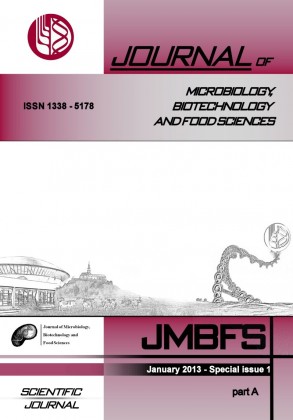AMYGDALIN AND ITS EFFECTS ON ANIMAL CELLS
Keywords:
amygdalin, animal cells cancer, reproduction, proliferation, apoptosisAbstract
Amygdalin is a natural compound whose anticancer, anti-inflammatory activity and other medicinal benefits have been known for many years. It has been isolated in 1830 by the French chemists Robiquet and Boutron-Charlard from kernels of the bitter almond (Prunus amygdalus). It is a major component of the seeds of prunasin family plants, such as apricots, almonds, peaches, apples, and other rosaceous plants. Amygdalin is composed of two molecules of glucose, one of benzaldehyde, which induces an analgesic action, and one of hydrocyanic acid, which is an anti-neoplastic compound. It has been used as a traditional drug because of its wide range of medicinal benefits. Amygdalin can be used in medicine for preventing and treating migraine, hypertension, chronic inflammation, and other reaction source diseases. This review is focused on the effects of amygdalin on the animal system.Downloads
Download data is not yet available.
Downloads
Published
2013-02-01
How to Cite
Halenár, M., MedveÄová, M., Maruniaková, N., & Kolesárová, A. (2013). AMYGDALIN AND ITS EFFECTS ON ANIMAL CELLS. Journal of Microbiology, Biotechnology and Food Sciences, 2(special issue 2), 2217–2226. Retrieved from https://office2.jmbfs.org/index.php/JMBFS/article/view/7462
Issue
Section
Biotechnology
License
Copyright (c) 2013 Marek Halenár, MarÃÂna MedveÄová, Nora Maruniaková, Adriana Kolesárová

This work is licensed under a Creative Commons Attribution 4.0 International License.
All papers published in the Journal of Microbiology, Biotechnology and Food Sciences are published under a CC-BY licence (CC-BY 4.0). Published materials can be shared (copy and redistribute the material in any medium or format) and adapted (remix, transform, and build upon the material for any purpose, even commercially) with specifying the author(s).

